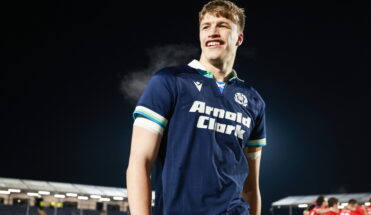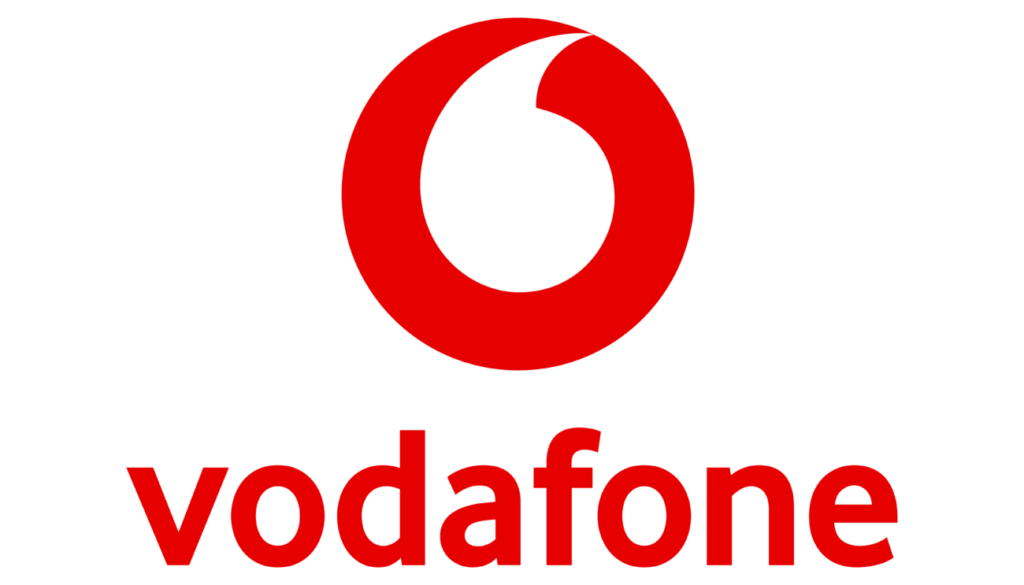Giving Scotland the Edge
When Scotland take to the field and the excitement builds ahead of a Test match, it represents the end of a period of behind-the-scenes planning, designed to afford the squad the best possible chance of gaining a positive result.
From the coaching staff to management and all besides, the amount of work done in preparation for the spectacle that is international rugby is exhaustive as it is thorough.
David Edge, Scotland Team Manager, stepped into his current role in early 2020, embarking on a year like no other in a job like no other. From organising facilities, to travel, to accommodation and everything in between to now operating in a bio-bubble, Edge has felt the inconsistency of life as much as anyone during the global pandemic.
Offering a brief insight into what the Team Manager’s job entails, he said: “Day-to-day is relatively easy; it’s a case of making sure everything you’ve put in place is actually in place. We forensically review each campaign and we aim to improve in all areas from campaign-to-campaign. Gregor drives everyone, players and staff, to be continually improving each and every day.”
“It’s about making sure everything on and off the field is in place. One day it can go smoothly as you’ve planned things months in advance, although that’s rare. Lots of things can change last minute and they have knock-on effects on the rest of what you’ve planned.”
These knock-on effects put into relative disarray the structures put in place for Scotland’s logistics in the year just passed, with fixtures rearranged and postponed with almost inconsistent consistency.
“I was lucky that I had the year before working with Gav Scott [previous Team Manager and now Scottish Rugby Operations Director] and you couldn’t have a better mentor than someone who has performed the role for the past eight years,” he added. “Starting the job and learning from an expert in the field was perfect but it was still special to take on the role myself for last year’s Guinness Six Nations.”

Edge’s relationship with rugby’s most iconic of championships is unique in its recent history, as he explained: “It’s such a special tournament, even more so last year being Irish and playing Ireland away in the first game. A few years ago my Dad had a heart attack at the Scotland-Ireland game [2017]. It was crazy. Scotland had won, Greig [Laidlaw] had kicked that late penalty and famously beat his chest.
“My Dad was there and we’d left the stadium literally just as Greig was taking that kick. We walked up to where we were parked near the Murrayfield Hotel and on that hill on the way up he got a sore stomach and got in the car, and had a heart attack on the way home.
“I had to pull him from the car and give CPR. All I could think was that that wasn’t going to be the last game of rugby that he saw, so it was great him and Mum came to my first Guinness Six Nations match in Dublin last year.
“Mum and Dad got to come to the game and of course I told him to take it easy! He now says he neutral and just wants to see a good game, but I’m not sure I believe him!
“Since then of course it’s been crazy. Not knowing what was coming in 2020, both in the summer and autumn – things were changing all the time and when you’re planning things nine months to a year out, it becomes very different when that timescale becomes six weeks to try and pull all the logistics together.
“It’s been similar for this year’s Guinness Six Nations. You need to have everything booked and in place without confirming a lot of things to anyone because you don’t want any cancellations fees and the like. It’s been a quite the year since I started as Team Manager.”
The effects of Coronavirus put paid to Scotland’s scheduled 2020 A-list summer tour, during which they were set to face South Africa and New Zealand. The planning of course had long since started, as Edge described: “That was a shame because we had the chance to be the first team to go and play the world champions in their back yard, which would’ve been a great experience to have a crack at them before anyone else.
“And then to take a team to New Zealand, which Scotland haven’t done for a long time – I’d actually done a recce out there – I’d left the house at 5pm on a Sunday afternoon and I got back at 2pm that following Friday, having been to Dunedin and done a day-and-a-half recce there. My luggage got lost so I had no fresh clothes and I was sat in my hotel dressing gown, washing my clothes overnight so I could wear them again the next day, then going out and looking at pitches and facilities in Dunedin, before washing and tumble drying again the next night. It seems like a lifetime ago now!”
“It’s a case of eight weeks to give everything they’ve got for the jersey.”
David Edge, Scotland Team Manager

Celebrating with Stuart Hogg at the end of Scotland’s Rugby World Cup 2019 win over Samoa
A new year and with it, the chance to start a new Guinness Six Nations campaign. In the current necessity of a secure bubble, part of Edge’s role is to help ensure that players are comfortable and remain occupied when not on the training pitch.
“We’re so lucky to be able to gather as a squad and sport is one of the few things that’s managed to survive that brings people joy,” he said.
“Because of the bubble we get to spend more time with the players so that gives you more time to connect with the players.
“In terms of keeping them busy, we met with our squad leaders in the autumn and asked ‘what do you need that you’re not going to have as normal in these camps?’ as there are no days out or the like.
“One of the things they suggested was a café experience so we managed to get pop-up cafes to come in – coffee and cake on the players’ day off was really popular and you suddenly get people connecting with others that they maybe haven’t spent that down time with before.
“We had food trucks come in, offering pop-up pizza, burgers, Spanish tapas; the boys love sushi so we had a local sushi restaurant set up outside that the players could go to. Every week is a new culinary experience for them and it also allows us to support some local businesses that have been hit hard by the pandemic.
“We try to make the team room as varied as we can, so for instance the players said they really wanted to play chess and I think at one stage we had three boards going – that’s something I’d never seen before!
“Then you have table tennis, pool table and the PlayStation is a funny one. Before that’s not something you’d encourage as it meant players would be inclined to stay in their room but when you’re trying to distance it’s actually really good and they have their headsets to communicate – I know Sean Maitland has a pretty slick set-up.
“I think the key is to offer lots of things for them to do in their down time without forcing fun on them. It can be quite an intense experience being in camp, so it’s important that there is time to switch off when appropriate.
“Wellbeing is another thing that we have worked on. In the first lockdown, we started a wellbeing project, speaking to psychologists and experts around the world, even from the US military, to learn about these things.
“It’s a massive thing especially at the moment, given players are leaving their wives and partners behind, so there’s a balancing act to reach and ensure they explore their wellbeing a little more.
“It’s a complex, personal thing, so without forcing it on anyone, we’re offering players the chance to learn about it and ask questions if they want to.”
The logistical matrix that goes with contemporary sport is of course designed with the same over-riding aim, according to Edge: “We’re all still here to do a job and ultimately that’s to win Test matches. As much as guys will miss their families, it’s a case of eight weeks to give everything they’ve got for the jersey.”
Related Fanzone
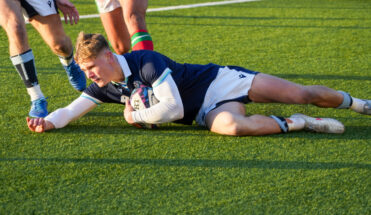
Scotland U20 45 – 43 Wales U20


Lochie’s Big Christmas Cards
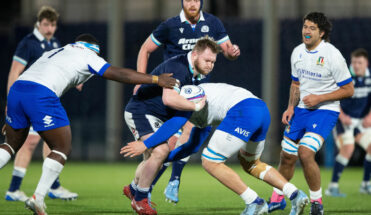
Report: Emerging Scotland 7 – 24 Italy U23s

Scotland U20 Development side lose out to Wales
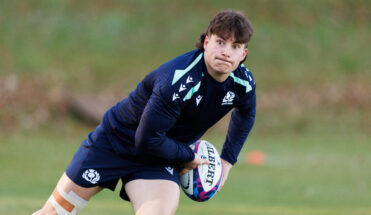
Preview: Emerging Scotland v Italy Under-23s

Arnold Clark Women’s Premiership final

National Youth Cup Finals 2024
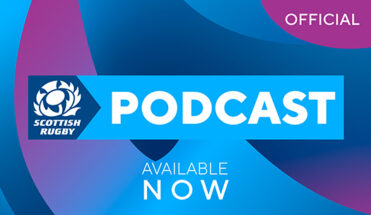
Podcast | David Nucifora & Claire Cruikshank
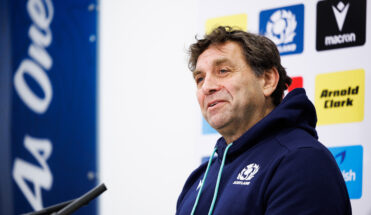

First Interview | David Nucifora
